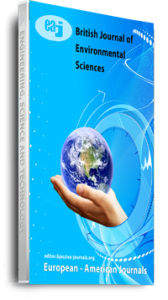This study assessed physicochemical properties of groundwater in Makurdi metroplis and its environs using index (WQI). A total of twenty five (25) borehole water samples were collected during the wet (September 2024) and dry (April 2025) seasons and analysed using standard laboratory techniques, including atomic absorption spectrometry, photometric, titrimetric, thermometric, and volumetric methods. Results showed that most physicochemical parameters fell within the limits set by the Nigerian Standard for Drinking Water Quality (NSDWQ, 2015), although notable seasonal differences were observed. Water Quality Index (WQI) results indicated a decline in “Good” water quality zones from 72.67% in the wet season to 60.94% in the dry season, with “Very Poor” (2.84%) and “Unsuitable” (0.03%) water quality zones appearing in the dry season. Seasonal trends underscore the positive effect of rainfall recharge, while the dry season showed higher levels of TDS, EC and ions due to evaporation and reduced dilution. While most groundwater remains suitable for domestic purposes, pollution hotspots require focused management through regular monitoring, better sanitation practices, protection of high quality zones, and community awareness programs to ensure sustainable water use.
Keywords: Groundwater, Physicochemical, Water Quality, Water Quality Index

